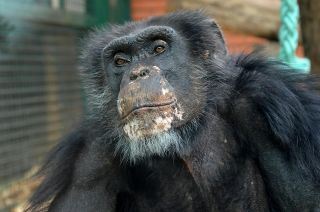Evolutionary Psychology
Does Sense of Order Distinguish Humans From Other Animals?
Research shows even our closest primate relatives struggle to learn sequences.
Posted March 31, 2024 Reviewed by Ray Parker
Key points
- Researchers tested bonobos for their ability to remember the order of information.
- Unlike humans, the apes struggled to learn sequences after thousands of trials.
- Sequential memory may have been a critical building block in creating human culture.

Crows who bend sticks into tools, whale clans who speak distinct dialects, and bumblebees who teach each other how to solve puzzles. Human beings aren’t the only animals with culture.
Still, the extent of our material and behavioral culture is unmatched in the rest of the animal world. Researchers at Stockholm University now believe they know why.
“We have previously analyzed a large number of studies that suggest that only humans recognize and remember sequential information faithfully,” says Johan Lind, associate professor in ethology and deputy director at Stockholm University’s Center for Cultural Evolution.
Lind and his colleagues suspected that the ability to remember the order of information was a key building block in the creation of human culture, and they decided to test this sequence-memory hypothesis in humans’ closest relatives: the other great apes.
The team selected bonobos raised in captivity at the Ape Initiative in Des Moines, Iowa, as their research subjects. The apes' participation in the research was voluntary, and they could interrupt and leave a test session at any time.
Over a series of experiments, the team tested the bonobos' ability to remember single stimuli and tell the difference between stimulus sequences. In one example, the apes were rewarded for pressing a button on the right side of a computer screen after seeing a yellow square followed by a blue square or pressing a button on the left of the screen after seeing a blue square followed by a yellow square.
“The study shows that bonobos forget that they have seen a blue square already five to ten seconds after it has disappeared from the screen and that they have great difficulty learning to distinguish the sequences blue-square-before-yellow-square from yellow-square-before-blue-square, even though they have been trained for thousands of trials,” says Vera Vinken, a coauthor of the study.
When the team ran the same experiment on human subjects, they learned the sequences almost immediately.
The fact that bonobos, our closest living relatives, struggle to tell sequences apart supports the theory that the sense of order is a basic cognitive difference between human beings and other animals. Sequential memory is essential for complex activities like speaking, cooking, building technologies, and developing belief systems.
“The study contributes another piece of the puzzle to the question of how the mental abilities of humans and other animals differ,” says Lind, “and why only humans…plan space travel and have learned to exploit the earth so efficiently that we now pose a serious threat to countless other life forms.”


